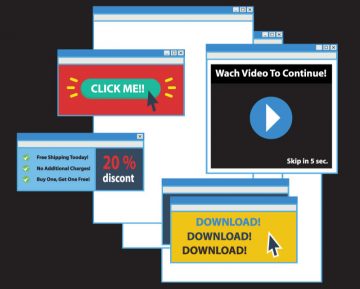Dipplate.com: Understanding the Notification Trick

Table of Contents
What is Dipplate.com?
Dipplate.com is a website that seeks to gain permission to send notifications to users' devices. It uses misleading prompts, such as fake CAPTCHA tests, to encourage visitors to click the "Allow" button. Once granted permission, it sends persistent notifications that can promote questionable websites, deceptive advertisements, and unreliable services.
Users typically land on Dipplate.com unintentionally, often through redirects triggered by advertising networks associated with untrustworthy websites. These networks may employ misleading advertisements or deceptive links to funnel traffic to sites like Dipplate.com.
How Browser Hijackers Influence Browsing Behavior
Browser hijackers are online nuisances that manipulate web activity, often redirecting users to pages they did not intend to visit. These redirects may serve a financial purpose, as site owners profit from increased traffic and ad interactions.
Dipplate.com operates similarly, using browser notifications to distribute advertisements, promote unreliable services, and encourage user engagement with misleading content. The notifications may show up even when the browser is closed, resulting in an intrusive browsing experience.
The Purpose Behind These Notifications
Dipplate.com's main goal is to generate traffic for affiliated pages. Some of these pages may host scams, deceptive promotions, or misleading advertisements. While some content might be legitimate, it is often presented in a way that exaggerates urgency or importance to compel users to take action.
Users might encounter fraudulent tech support alerts, fake lottery winnings, or offers that pressure them into sharing personal information or making unnecessary payments. These tactics aim to exploit users' trust and curiosity.
How Users Grant Permission Unknowingly
Websites require user approval to send browser notifications. Dipplate.com employs deceptive techniques, such as displaying a fake CAPTCHA test, to trick visitors into enabling notifications. Clicking "Allow" unintentionally permits the site to push notifications that may contain misleading alerts, exaggerated security warnings, or links to suspicious content.
Once notification access is granted, users may receive constant pop-ups that disrupt their browsing experience and attempt to lure them into engaging with unreliable websites. These notifications often appear in system alerts, making them difficult to ignore.
How to Disable Unwanted Notifications
If Dipplate.com has been allowed to send notifications, users can revoke its permission through browser settings. Most modern browsers provide an option to manage notification settings, allowing users to block or remove sites that have been given access.
To prevent this issue in the future, users should be cautious when a website requests permission to send notifications. If an unfamiliar site prompts such a request, it is best to decline or ignore it to avoid unwanted pop-ups.
Tips for a Safer Browsing Experience
To minimize exposure to intrusive notifications and misleading websites, consider these best practices:
- Be Cautious with Notification Requests: Only allow notifications from trusted sources. If a site unexpectedly requests permission, decline the request.
- Use an Ad Blocker: Many deceptive sites rely on aggressive advertising. An ad blocker can help reduce exposure to misleading ads and redirects.
- Keep Browsers and Security Tools Updated: Updates improve security and reduce the risk of encountering deceptive sites.
- Avoid Clicking Suspicious Links: If a pop-up or notification urges immediate action, verify the information from an official source rather than clicking the provided link.
- Review Site Permissions Regularly: Check browser settings periodically to ensure that no unauthorized sites have been granted notification access.
Key Takes
Dipplate.com exemplifies how certain websites use deceptive strategies to gain notification access and push intrusive advertisements. While it may not pose a direct risk, it can lead to an inconvenient browsing experience. By understanding how such sites operate and taking precautionary measures, users can prevent unwanted notifications and maintain a more controlled online environment.








